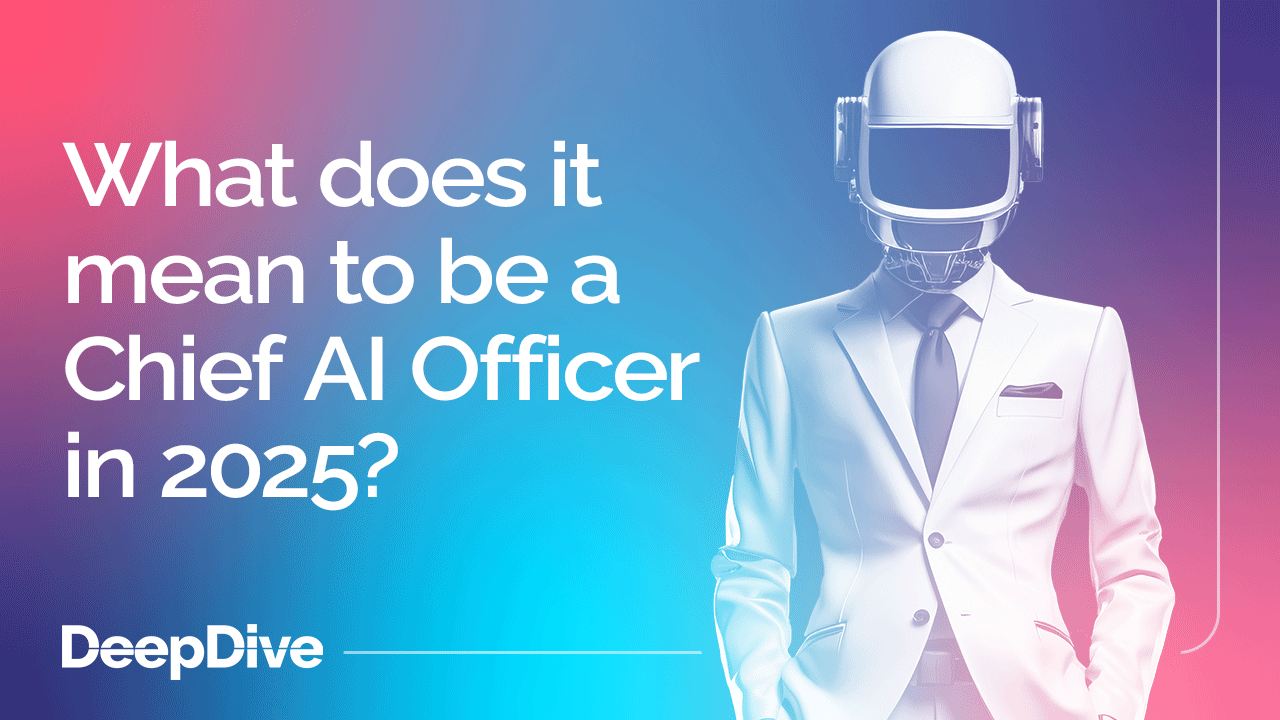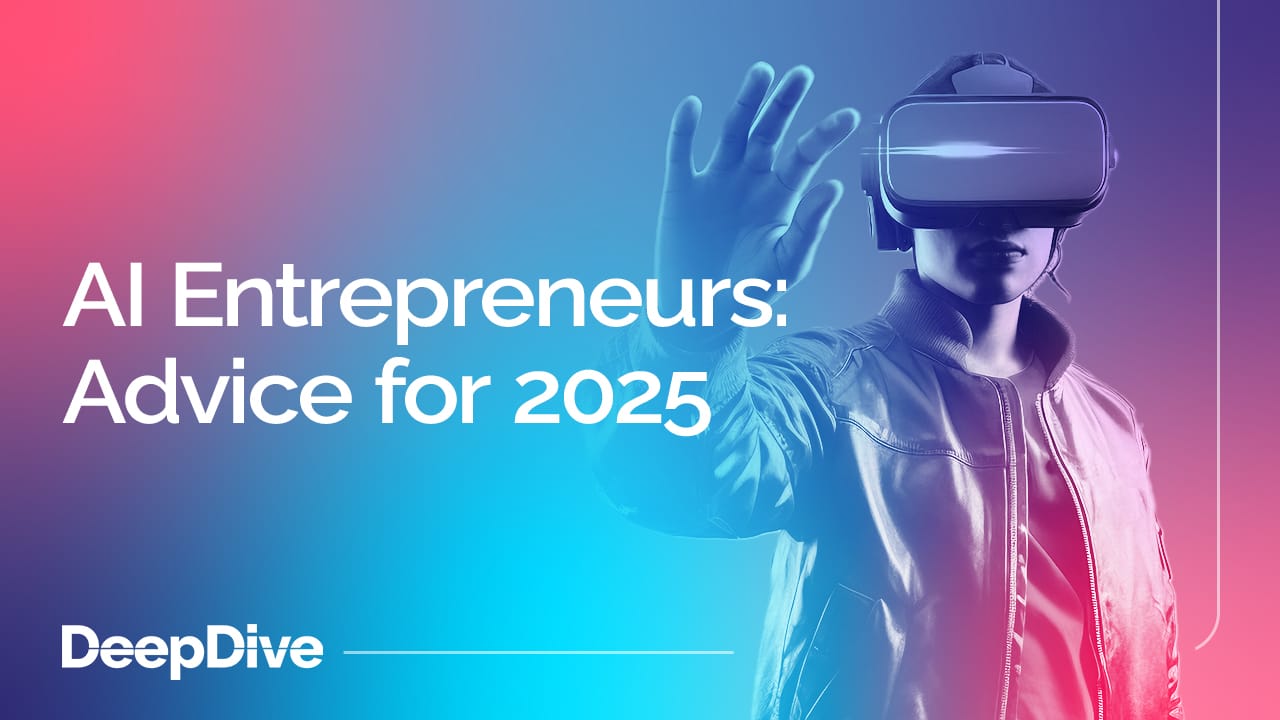

AI Entrepreneurs: Advice for 2025

Welcome to the 10 new deep divers who joined us since last Wednesday.
If you haven’t already, subscribe and join our community in receiving weekly AI insights, updates and interviews with industry experts straight to your feed.
AI entrepreneurs: We see you. You’re stepping into one of the most exciting sectors in the world, but once you get your foot in the door it’s a whirlwind. AI is moving at an incredible speed. And that offers immense opportunities; but with challenges to match.
Investment is pouring in. Regulations are tightening. Competition is growing. So AI founders need strategy, grit, and the ability to roll with the changes.
We spoke to just a few of the leading AI investors and entrepreneurs in the global DeepFest community to get their best advice for you – to help you launch or scale your AI startup in 2025.
Here’s what they told us.
Is your AI idea actually…good?
Not every AI idea is a winner. Abdalla Kablan (AI Investor and Entrepreneur) emphasised that a good AI idea isn’t just about having impressive technology – it has to solve a real problem.
“An AI idea’s worth hinges on its scalability, applicability, and ability to address a genuine pain point. Entrepreneurs must ask if their solution truly simplifies a complex issue or enhances lives in a meaningful way.”
He also stressed the importance of market validation: “Seek feedback, adjust rapidly, and ensure your solution isn’t just a technological marvel but a practical utility.”
In other words, build something that people actually need. Not just something that sounds cool.
Funding for AI startups: What investors really want
AI is an increasingly competitive space. So how do you stand out from every other AI startup seeking investment?
For Kablan, it’s about having a clear vision.
“Investors need to see a roadmap where AI isn’t just a buzzword but a tool for tangible, scalable solutions,” he said. “Demonstrate a clear understanding of your target market, show evidence of concept validation, and articulate how your AI delivers a competitive edge.”
You should be able to explain exactly how your AI works, why it’s better than existing solutions, and how you’re going to scale it. Investors are looking for more than just a clever algorithm; they want proof that your AI product can drive real business impact.
Build trust in your AI with influence
AI startups often struggle with consumer trust. But influencers could help bridge the gap.
Influencer Jordi van den Bussche (Founder of JVDB Studios) sees a huge opportunity in the collaboration between AI developers and content creators.
“The synergy between AI developers and influencers is pivotal and still evolving. By collaborating closely, both can help demystify AI technologies, showcasing their benefits and real-world applications to a broader audience,” he said.
It’s worth considering whether leveraging trusted influencers might help to educate and engage their audience. Whether it’s AI-generated content, brand partnerships, or influencer-led AI initiatives, this relationship can be a game-changer for startups looking to gain mainstream traction.
An AI brand needs to resonate with its market
Many AI startups struggle to connect with their target market. Van den Bussche believes this is because there’s often a disconnect between technologists and brands.
“Brands need to be more involved in the development process to tailor AI solutions that not only align with market needs but also resonate with consumers on a personal level,” he added.
So AI startups should think beyond functionality. You need to build brand identity and emotional connection. The most successful AI companies in 2025 will be those that understand branding as well as they understand technology.
Three essential tips for AI entrepreneurs
Laurie Fuller (Venture Partner at Raiven Capital and mentor at Google for Startups), offered three key pieces of advice for AI founders:
1. Solve Real-World Problems
“AI is a powerful tool, but its value comes from solving meaningful, tangible challenges. Whether you’re targeting industries like healthcare, climate tech, or logistics, ensure that your AI application addresses a clear, impactful problem.”
2. Prioritise Ethical AI and Transparency
“As AI continues to shape industries, concerns around bias, transparency, and ethical use are growing. Build AI systems that are explainable, fair, and responsible. Investors, consumers, and regulators are increasingly focused on this, and companies that fail to address these concerns could face reputational and legal challenges.”
3. Balance Innovation with Scalability
“It’s easy to get caught up in cutting-edge research, but successful AI startups know how to scale their solutions. Focus on creating AI products that can be implemented at scale and generate consistent, reliable results.”
The road ahead: Competitive, tough, and very exciting
We said it earlier, and we’ll say it again:
With opportunity comes competition.
The leading AI startups that emerge over the next year and beyond will be the ones that solve real problems, build trust with their consumer market, and focus on both scalability and long-term growth.
As Fuller put it, entrepreneurship is about “turning ideas into reality, creating solutions to pressing challenges, and making a positive impact on society.”
AI entrepreneurs who follow this approach will be the ones who have the biggest impact on our global future.
If you’re launching or scaling an AI startup, DeepFest is the place to be. Register now and join us in Riyadh in April 2026 to position yourself as a pioneer in the AI industry.
We can’t wait to see you there.





